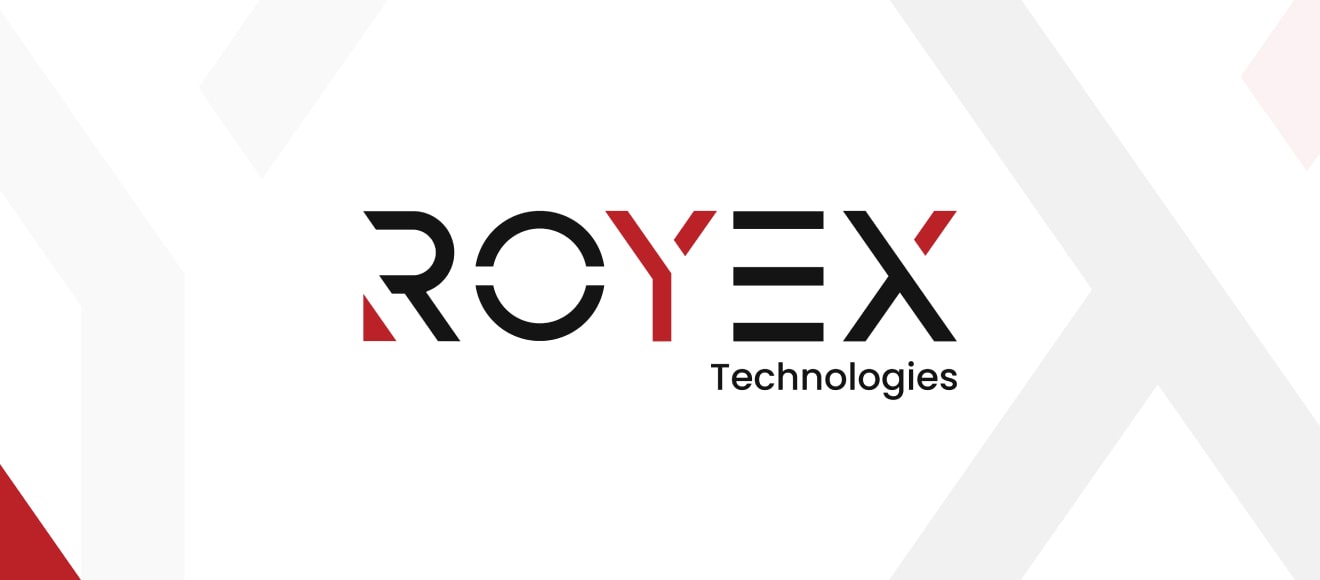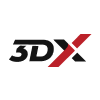
PRYPCO Dubai: How Real Estate Tokenization Works, Costs, UAE Regulations, and Why Royex is the Right Partner to Build Your Platform
Introduction: The New Era of Real Estate Investment in Dubai
Dubai’s real estate market has always been one of the most attractive in the world—offering high rental yields, strong appreciation, and global investor interest. But traditional property investment comes with high entry costs, low liquidity, and complex legal procedures.
That’s where PRYPCO Mint comes in.
PRYPCO is the first government-backed real estate tokenization platform in the MENA region, integrating blockchain technology with Dubai Land Department (DLD) certification. It has already proven its appeal, selling a Dh 1.75M tokenized villa in under five minutes to 169 investors from 40 nationalities.
This article explores:
-
How PRYPCO works step-by-step
-
Development cost & timeline to build a similar platform
-
UAE regulations governing such projects
-
Monetization strategies
-
Future potential of tokenized real estate
-
Why Royex Technologies is perfectly positioned to develop these platforms
2. How PRYPCO Works
PRYPCO combines fractional real estate ownership with blockchain tokenization to make property investment more affordable, liquid, and accessible.
2.1 Tokenization Process
-
Property Selection – PRYPCO lists high-quality properties, often in prime Dubai locations, with strong rental and appreciation potential.
-
Property Division – Each property is divided into digital tokens (“Blocks”), representing fractional ownership.
-
Minimum investment: AED 2,000 (~$545).
-
Blockchain Registration – Tokens are issued on the XRP Ledger, a high-performance blockchain network chosen for speed, scalability, and security.
-
Legal Certification – Each token owner gets a Dubai Land Department Token Ownership Certificate—legally recognized just like a title deed.
-
Income Distribution – Investors receive monthly rental payouts proportional to their holdings.
-
Capital Gains – When the property is sold, profits are distributed among token holders.
-
Liquidity Options – Tokens can be sold on PRYPCO’s internal marketplace or via a collective property sale.
2.2 Example: PRYPCO’s Record Villa Sale
-
Property value: Dh 1.75 million
-
Sold out in under 5 minutes
-
169 investors from 40 different countries
-
Average investment: AED 10,355 (~$2,820)
-
Proof of global investor demand for tokenized property.
3. Development Cost for a PRYPCO-Style Platform
Building such a platform involves frontend & backend development, blockchain integration, marketplace functionality, compliance frameworks, and security.
|
Feature / Module |
Estimated Cost (USD) |
|
Core platform (user registration, KYC, dashboards) |
$50K – $80K |
|
Blockchain & smart contract integration |
$40K – $60K |
|
Legal/regulatory compliance setup (VARA, DLD, CMA) |
$30K – $50K |
|
Token marketplace & liquidity module |
$30K – $50K |
|
Security audits & scalability |
$20K – $40K |
|
Total |
$150K – $280K |
💡 MVP Version can be developed for $80K – $120K with limited features and no secondary market.
4. Development Timeline
|
Phase |
Duration |
|
Requirements & compliance setup |
1–2 months |
|
Core platform build |
2–3 months |
|
Blockchain integration |
1–2 months |
|
Marketplace module |
1–2 months |
|
QA, audits, sandbox approval |
1–2 months |
|
Total |
6–10 months |
5. UAE Regulations for Tokenized Real Estate
Dubai is not only a global hub for luxury property, it is also one of the most progressive markets in regulating blockchain and virtual assets. While many countries are still debating how to treat tokenized property, the UAE—particularly Dubai—has established a clear legal and operational framework for platforms like PRYPCO.
The UAE’s approach ensures:
-
Investor protection
-
Legal recognition of digital ownership
-
Compliance with anti-money laundering (AML) standards
-
Integration with existing property and financial systems
Let’s break down the key entities and how they interact.
5.1 Key Regulatory Authorities and Their Roles
1. Dubai Land Department (DLD)
-
Governs property ownership and registration.
-
Issues the Token Ownership Certificate, which has the same legal validity as a traditional title deed.
-
Verifies property valuations, seller legitimacy, and ensures all ownership transfers follow Dubai property laws.
-
Works with tokenization platforms to integrate blockchain data with the official Dubai property registry.
2. Virtual Assets Regulatory Authority (VARA)
-
Oversees all virtual asset activities in Dubai, including token issuance, marketing, and trading.
-
Requires platforms to:
-
Register as a licensed Virtual Asset Service Provider (VASP).
-
Maintain cybersecurity measures for token storage and transfer.
-
Report suspicious transactions under AML/CFT laws.
3. Central Bank of the UAE
-
Regulates fund flow and payment systems for such platforms.
-
Mandates that all investor funds be held in a Client Money Account (CMA)—a protected account separate from company operating funds.
-
Oversees KYC (Know Your Customer) and transaction monitoring obligations.
4. Dubai Financial Services Authority (DFSA) (if operating in DIFC)
-
If the platform is registered in the Dubai International Financial Centre (DIFC), DFSA regulations may also apply—particularly for investment fund classification and investor eligibility rules.
5. Real Estate Regulatory Agency (RERA)
-
Supervises the property management and brokerage aspects of tokenized real estate.
-
Ensures that property managers adhere to tenancy laws and service fee transparency.
5.2 Compliance Requirements (Detailed)
To operate a PRYPCO-style tokenized property platform in the UAE, you must meet multi-layered compliance obligations:
1. Licensing & Registration
-
Obtain a VARA VASP license for virtual asset issuance and marketplace operations.
-
Register with DLD for property transaction processing.
-
If operating from DIFC, secure DFSA approval for investment activity.
2. Property Due Diligence
-
Full legal title verification to ensure no disputes, liens, or encumbrances exist.
-
RERA-compliant valuation reports from certified real estate valuers.
-
Verification of ownership transfer rights to allow fractional sale.
3. Token Structuring
-
Define whether tokens are:
-
Security Tokens – Representing legal ownership and subject to investment regulations.
-
Utility Tokens – For access or rights without ownership (less common in property).
-
Smart contracts must be audited for:
-
Correct ownership representation.
-
Secure dividend distribution logic.
-
Compliance with UAE digital asset guidelines.
4. KYC/AML Procedures
-
Know Your Customer – Verify investor identity before onboarding:
-
Emirates ID for residents.
-
Passport and proof of address for international investors.
-
Anti-Money Laundering (AML) – Monitor for suspicious fund sources.
-
Counter-Terrorist Financing (CTF) – Screen all investors against global sanctions lists.
5. Client Money Account (CMA) Management
-
All investor funds must be deposited in a CMA with a UAE-licensed bank.
-
Funds remain in the CMA until:
-
Minimum investment threshold is reached.
-
Ownership transfer is completed with DLD
-
Prohibits commingling with operational accounts.
6. Transaction & Ownership Reporting
-
Maintain on-chain and off-chain ledgers synced with DLD.
-
Provide investors with monthly reports on:
-
Rental income distribution.
-
Property market valuation.
-
Token resale activity.
7. Marketing & Investor Communication
-
Marketing materials must:
-
Clearly disclose risk factors.
-
Avoid misleading ROI claims.
-
VARA approval required for promotional campaigns involving virtual assets.
8. Dispute Resolution Framework
-
Must outline processes for:
-
Token ownership disputes.
-
Rental income distribution errors.
-
Property sale disagreements among token holders.
-
Often includes an arbitration clause under Dubai International Arbitration Centre (DIAC).
5.3 Why This Regulatory Structure Matters
Without proper compliance:
-
Your platform could face license revocation.
-
Token sales could be deemed illegal securities offerings.
-
Investor disputes could result in lawsuits or government intervention.
For startups and investors, UAE’s clear regulatory pathway is a huge advantage—it allows innovation without operating in a legal grey area.
6. Monetization Model
Platforms like PRYPCO generate revenue from multiple sources:
-
Entry Fees – % charged on token purchases (e.g., 1–2%).
-
Exit Fees – Applied when tokens are sold.
-
Annual Management Fee – % of property value (e.g., 0.5–1%).
-
Capital Gains Fee – % of profits upon property sale (e.g., 10–15%).
-
Secondary Market Fees – Commissions on token resales.
7. Future of Tokenized Real Estate
7.1 Market Growth
-
Dubai tokenized real estate could reach AED 60B (~USD 16B) by 2033 (about 7% of property transactions).
-
Global tokenization market projected to grow from $3.8B (2024) to $26B (2034).
7.2 Emerging Trends
-
Global Participation – Opening to international investors beyond UAE residents.
-
New Asset Types – Commercial, hospitality, and mixed-use properties.
-
DeFi Integration – Using tokenized property as loan collateral.
-
Instant Liquidity – Peer-to-peer token trading.
8. Why Royex Technologies is the Best Partner for Your Project
8.1 Blockchain & Web3 Expertise
We specialize in secure blockchain platforms, smart contracts, and token marketplaces—exactly what you need for PRYPCO-style systems.
8.2 UAE Regulatory Knowledge
We understand DLD, VARA, CMA compliance, ensuring your project meets legal requirements.
8.3 End-to-End Development
From UI/UX design to smart contract deployment, payment gateway integration, and secondary market modules—we handle it all.
8.4 Proven Delivery
We can bring your platform to market in 6–10 months with enterprise-level quality.
8.5 Future-Proof Architecture
We build modular platforms ready for multi-currency support, NFT integration, and cross-border investor onboarding.
9. Conclusion
PRYPCO has proven that blockchain-backed fractional property ownership is not just possible—it’s the future of real estate investing.
If you’re looking to build a similar platform, Royex Technologies offers:
-
Technical mastery
-
Regulatory expertise
-
Proven delivery capability
📩 Start Your Project Today — Contact Royex Technologies to discuss your PRYPCO-style platform.





